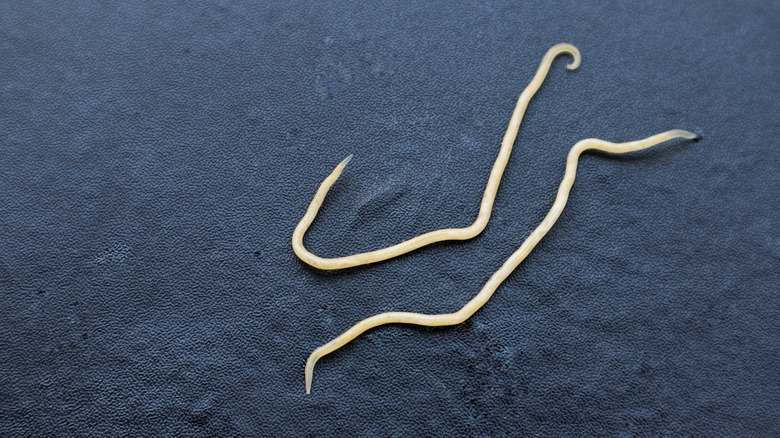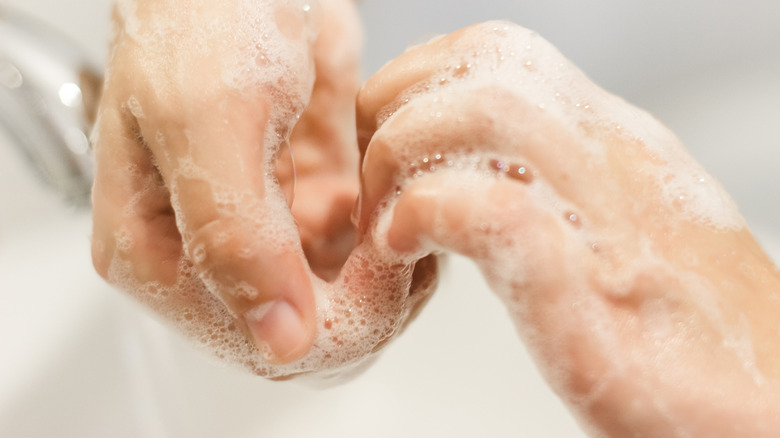How Improving Your Hygiene Habits Helps Prevent Pinworms
The idea of worms living in your body may sound like something straight out of a horror movie, but there are in fact intestinal worms that can multiply and cause infections. In the United States, the most frequently found intestinal worms are called pinworms, and they tend to affect the anus, per Mayo Clinic. Ranging in size from approximately six to 13 millimeters, or about half of an inch at maximum length, pinworms reproduce by laying microscopic eggs when the person is sleeping. Most often affecting children rather than adults, these thin white-colored worms can exist in a person's body without any symptoms, though itchiness in the rectal area is often reported, and can be transferred to other people.
Given the contagious nature of pinworms, knowing the hygiene habits you should incorporate into your daily routine to prevent these intestinal worms from infecting you or your children is a good first step in preventing these unwanted visitors. Pinworms are often transmitted when a person comes into contact with someone who has failed to wash their hands after using the restroom, according to the New York State Department of Health. Particularly with children, not washing hands after using the bathroom and then touching toys or items shared with other people can be a means of causing pinworm infection. When hands aren't washed, pinworm eggs can hide beneath fingernails and spread to anything the person touches. Luckily, there are some easy hygiene habits that can help prevent pinworms.
Intentional washing is essential
In addition to washing hands with soap and water after bathroom use, there are several ways to incorporate healthy hygiene habits into your routine to prevent pinworms. The Centers for Disease Control and Prevention (CDC) give recommendations for mitigating the spread of pinworms and terminating infections so that re-infection doesn't occur. If a young child becomes infected with pinworms, washing your hands before changing diapers or clothing can keep both yourself and your child protected from pinworm transmission. Other healthy hygiene habits include keeping fingernails short so that eggs can't become trapped, refraining from biting nails or placing fingers near your mouth, and being mindful of touching undergarments and skin around the anus without subsequently washing hands with soap and water. When it comes to cleansing your body, you may be surprised to learn that taking a shower is a better pinworm prevention method than taking a bath for both adults and children.
For children in grade school and above, it's advised that a shower be taken every day (via WebMD). During daily showers, it's essential to clean under the fingernails. It's also wise to use a separate washcloth or cleansing towel for the anal area so potential pinworms, as well as bacterial infections, don't spread. Regularly changing and washing bedsheets, especially if a recent pinworm infection has occurred, is highly advisable (per CDC). Changing underwear and promptly washing used undergarments are additional habits that can be incorporated to emphasize hygiene that can prevent pinworms.


